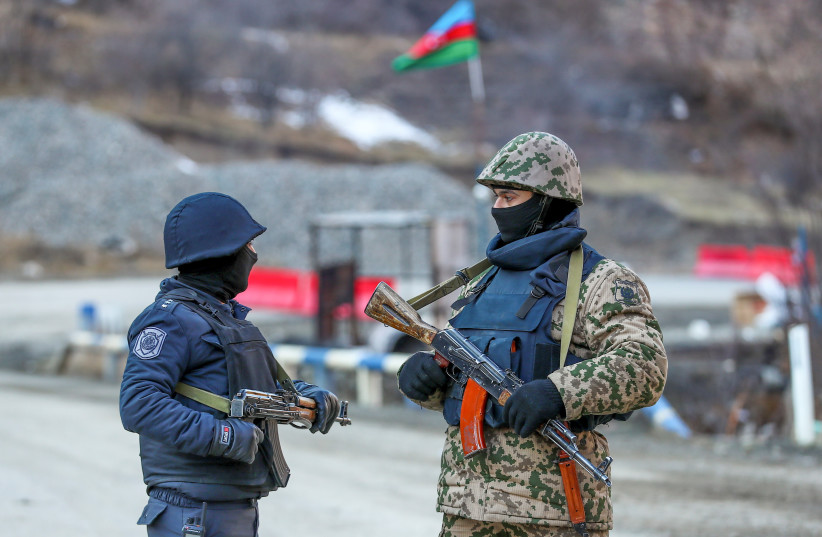Armenian officials have warned of a humanitarian crisis in the Nagorno-Karabakh region as Azerbaijanis have blocked the Lachin corridor, the main road in the area, for 24 days as of Wednesday.
While Armenian officials have accused Azerbaijani officials of blockading the corridor, Azerbaijan claims that the people blocking the road are "ecologists and activists" protesting against the mining of mineral deposits in the area. The de-facto Artsakh Republic has said that it has halted mining work in the area and had been operating according to international standards.
Groceries, stores and pharmacies in the area are largely empty, Armenpress reported on Wednesday, with photos reportedly from the region showing bare shelves in many shops. Since December 29, the de-facto Artsakh Republic has imposed restrictions on restaurants and eateries due to the shortage of food.

With the help of the International Committee of the Red Cross, a number of patients have been transferred for medical treatment in Armenia.
Azerbaijani officials have rejected Armenia's claims of a blockade, claiming that supply vehicles belonging to Russian peacekeepers and vehicles belonging to the Red Cross are moving unhindered along the road.
David Babayan, the foreign minister of the de-facto republic, called for sanctions to be issued against Azerbaijan in light of the blockade.
“This is nothing but a challenge to the civilized world because an entire nation is starving to death. Elsewhere around the world children are dancing and asking Santa Claus for presents. Our children don’t even have bread to eat, they are starving,” said Babayan, according to Armenpress.
The Armenian foreign ministry called on Russia to make "clear efforts" to end the blockade, accusing Azerbaijan of "ethnic cleansing."
"Hundreds of families remain separated, being on different sides of the Azerbaijani blockade. 120,000 people have found themselves in a de facto status of a captive," said the Foreign Ministry in a statement. "The claims of the Azerbaijani side that the Lachin Corridor is actually open are completely groundless, which is evidenced at least by the fact that only the vehicles of the International Committee of the Red Cross are allowed to transport a limited number of patients to the Republic of Armenia in the event of a life-threatening illness."
Azerbaijani president reiterates commitment to open corridor through Armenian territory
In a New Year's address published on Sunday, Azerbaijani President Ilham Aliyev stressed that Azerbaijan would establish the Zangezur Corridor, which would link Azerbaijan to a region controlled by Azerbaijan called Nakhchivan. The two regions are split by Armenian territory which connects Armenia to Iran.
Aliyev added that Azerbaijan has "gained a foothold in many strategically advantageous positions" after a number of military operations it conducted against Armenia in the past year.
In December, the United Nations Security Council held a discussion about the situation in the Lachin Corridor, warning that the blockade threatens to "derail fragile progress and unleash a dangerous resumption of violence."
